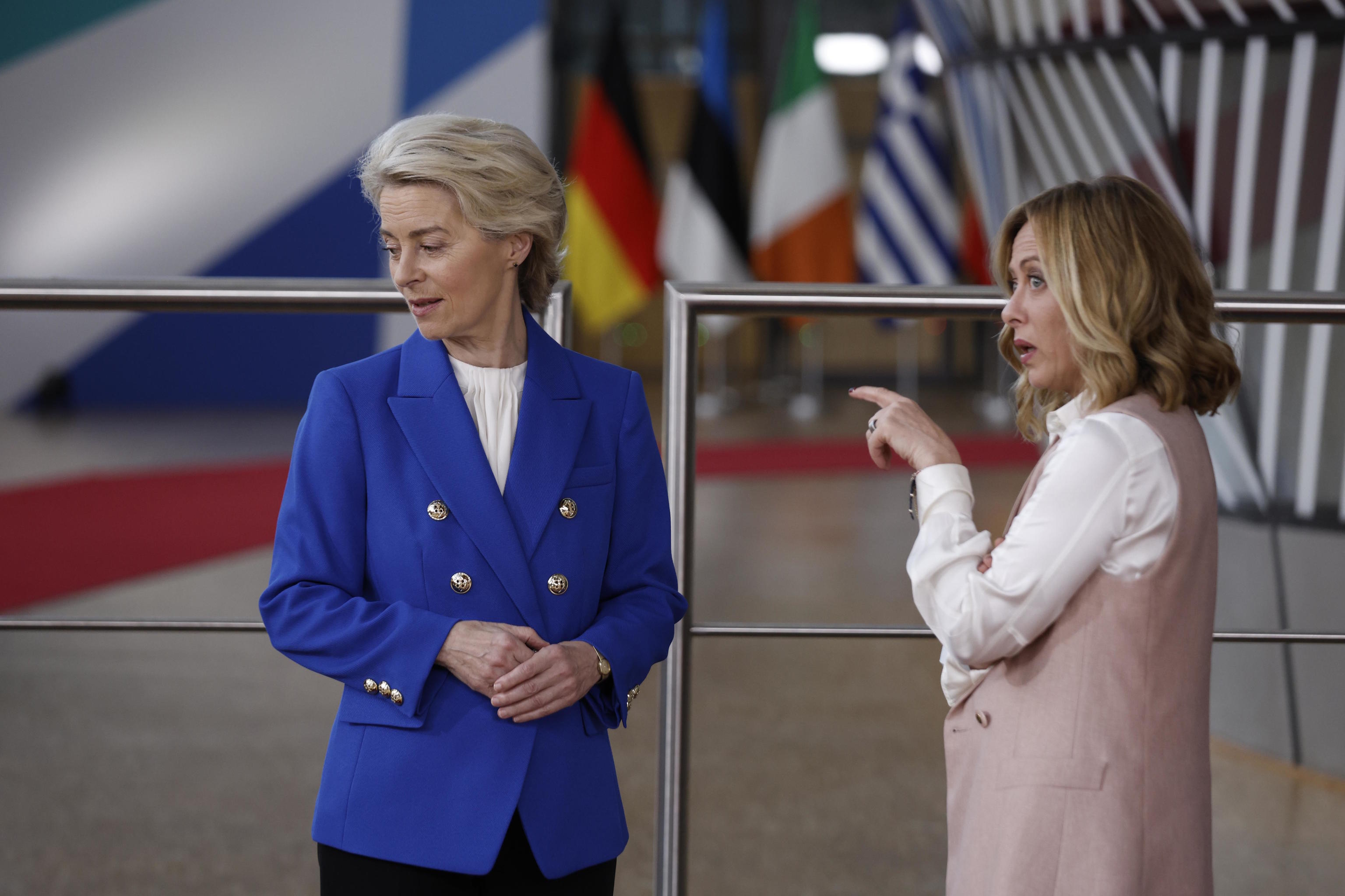Giorgia Meloni and Ursula von der Leyen will meet this Thursday with at least eight other prime ministers to discuss "innovative solutions" in immigration. This includes reception centers outside the European Union borders.
This will take place before the European Council, which is being held in Brussels starting this Thursday, and the meeting was initially driven by Italy, Denmark, and the Netherlands. However, the presence of the President of the European Commission significantly reinforces the meeting. In Brussels, it is considered to be a sort of parallel summit that Germany could also join.
Poland, Austria, the Czech Republic, or Greece are among the other countries expected to attend, making the mix of political orientations and sensitivities very relevant. The push for so-called "innovative solutions," a phrase used by the Commission President on Tuesday, is evident, as well as the ability of Prime Minister Meloni to attract and design the meeting alongside Von der Leyen.
Organizers point out that this should not be seen as opposition to other countries, and the Commission also aims to normalize the President's attendance. However, it is clear that the reality is not exactly that. During the meeting, the attending countries will establish joint positions that they will then defend at the European Council. Von der Leyen, on her part, could have chosen to wait for the official meeting to address the issue. Instead, she wanted to be present at the parallel summit.
The process has accelerated since Tuesday when the Commission made public the letter that the President sent to the 27 EU member countries ahead of the European Council. This document, as explained in the EU capital, is based on the requests made by 15 countries to Von der Leyen in May to explore new options and reception centers. "It's a majority of countries," they add in Brussels, and the reality is that more and more countries are imposing or approaching restrictions on migratory movements.
Meanwhile, the Spanish government maintains its rejection of reception centers, as expressed last Tuesday, and will not participate in the parallel summit, according to government sources.
This episode threatens to create a fracture in the excellent relationship between the Spanish Prime Minister, Pedro Sánchez, and Von der Leyen, on a very sensitive issue. Sources from Moncloa state that they are not concerned about not being in that picture, adding that each country can do as it sees fit.
Spanish diplomatic sources also emphasize that reception centers are not the appropriate solution to address illegal immigration. First, because they believe it is not clear whether it is possible to establish the so-called hubs in third countries, and second, because they argue that they will not be effective. "They would not reduce the arrival of immigrants," they add.
Spain's position focuses on the "preventive component," "working with countries of origin and transit to prevent arrivals, trafficking, and mafias," they explain. They highlight the need for legal immigration, the government's support for these movements, and the country's need to receive labor and workforce.
